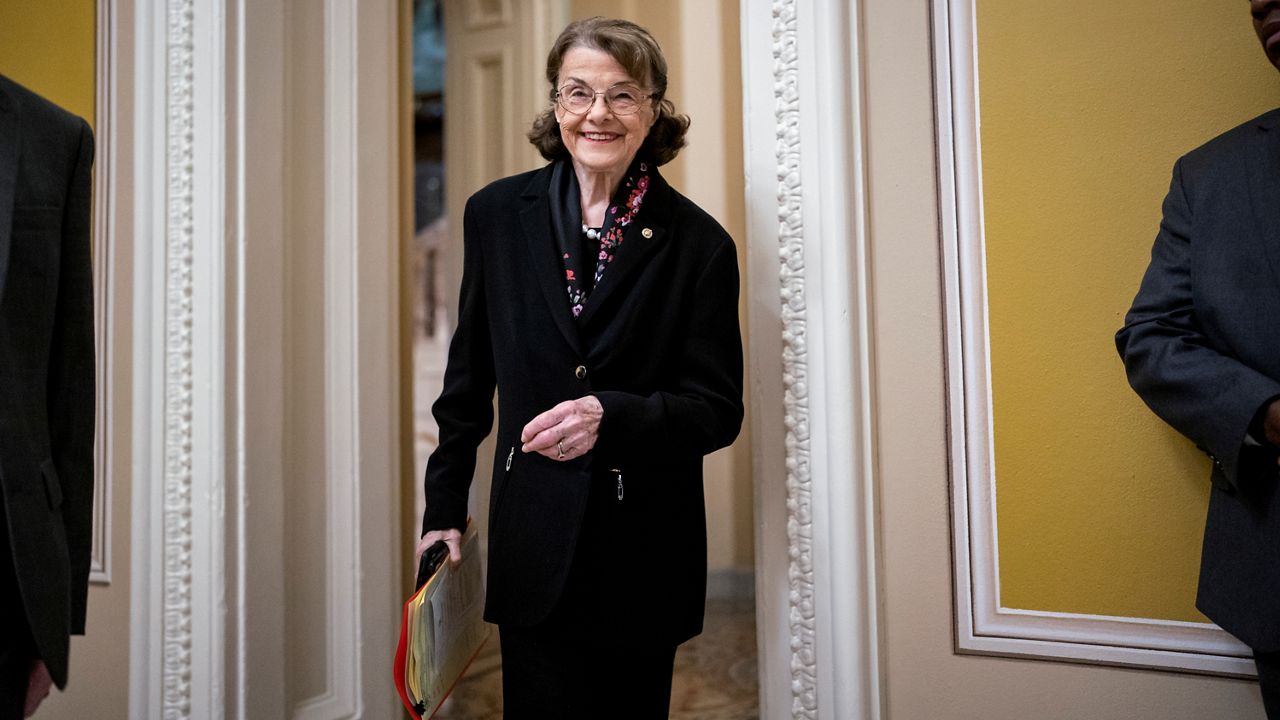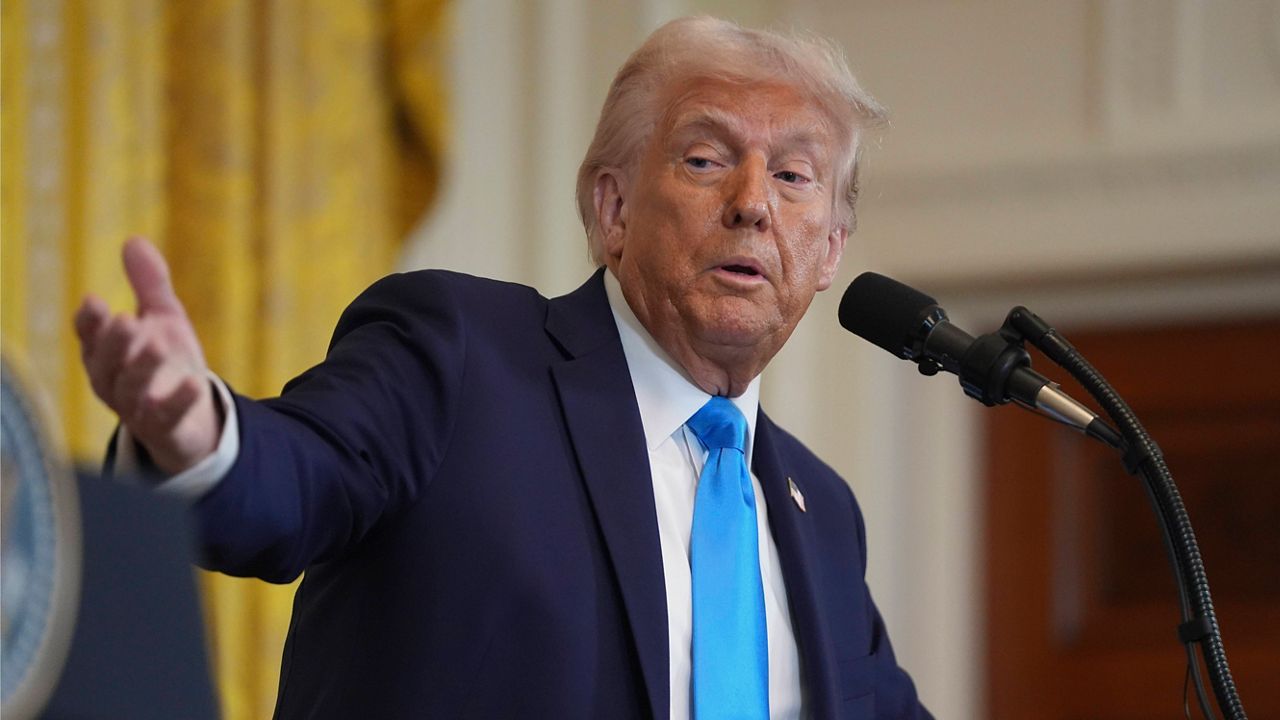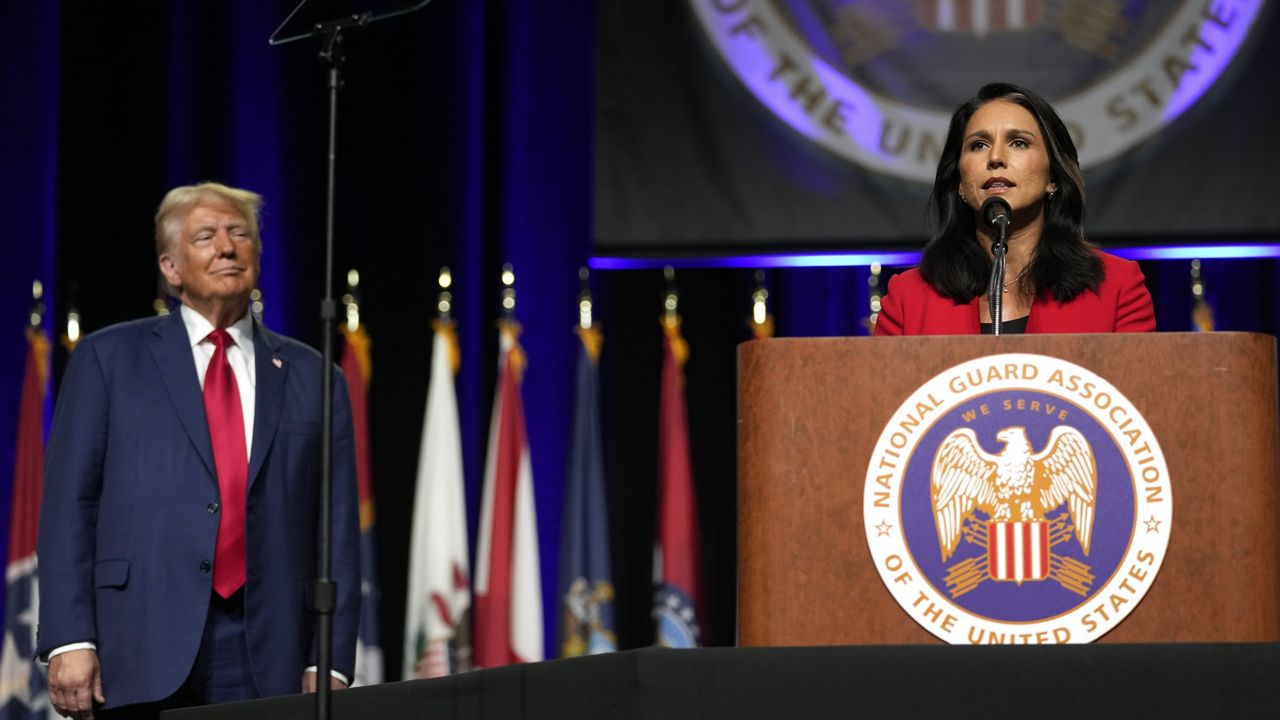After months of speculation about her political future, California Sen. Dianne Feinstein announced Tuesday that she will not seek re-election next year.
"I am announcing today I will not run for reelection in 2024 but intend to accomplish as much for California as I can through the end of next year when my term ends," she wrote in a statement, announcing her intent to continue to work on issues like health care, wildfire prevention and gun violence.
“Even with a divided Congress, we can still pass bills that will improve lives. Each of us was sent here to solve problems. That’s what I’ve done for the last 30 years, and that’s what I plan to do for the next two years. My thanks to the people of California for allowing me to serve them.”
Feinstein, 89, is the longest-tenured female senator in U.S. history, and is currently the oldest sitting member of Congress. She was first elected to represent California in 1992 and has since been re-elected five times, including in 2012, when she received a record 7.86 million votes, the highest popular vote total in U.S. Senate history.
Throughout her career, she has been a trailblazer, authoring the 1994 Assault Weapons Ban and becoming the first woman to chair the Senate's all-important Rules and Intelligence Committees, as well as the first to oversee a presidential inauguration for Barack Obama in 2009.
President Joe Biden, who served in the Senate with Feinstein for nearly two decades, hailed her service to California and the country.
"Often the only woman in the room, she was determined to lift America up, and through her intellect, empathy, character, and drive, to make this country everything it could be," Biden said in a statement.
"Through force of will, she led the fight to get the assault weapons ban passed. Like so many who have been touched by gun violence, that victory was personal for her," he continued. "She is a passionate defender of civil liberties and a strong voice for national security policies that keep us safe while honoring our values. A lifelong Californian, she has worked tirelessly to protect our environment for future generations."
"Over the three decades I’ve known her, Dianne and her late husband Richard became dear friends to Jill and me," the president said. "I’ve served with more U.S. Senators than just about anyone. I can honestly say that Dianne Feinstein is one of the very best. I look forward to continuing to work with her as she serves out her term."
In recent years, questions have been raised about her cognitive health and memory, though she has defended her effectiveness in representing the state.
"The time has come," she told reporters Tuesday when asked about what prompted her decision, joking: "It's not until the end of next year, so don't hold your breath."
"There are times for all things under the sun and I think that will be the right time," she added.
Feinstein's announcement clears the way for what will no doubt be a crowded and expensive race in the Golden State to replace her; California Reps. Adam Schiff and Katie Porter have already officially thrown their hats in the ring, with sources telling Spectrum News that fellow House Democrat Rep. Barbara Lee told her colleagues she was also planning to enter the race.
Senate Majority Leader Chuck Schumer announced Feinstein’s decision during a closed door lunch of Democratic senators at the Capitol. The senators broke into rounds of applause.
"We're all glad she's remaining with us in the Senate and will be fighting the fight with us for the next year and a half," Schumer told reporters at a press conference later Tuesday. "But she's a legend. A legend in California as the first woman senator. A legend in this Senate, she was the leader on so many different issues: assault weapons, environment, women's rights and so much else."
Feinstein told her colleagues how hard her husband’s death was and that she was ready to step away from public life after finishing this term, Sen. Elizabeth Warren, D-Mass., said afterward. Her husband, Richard Blum, died last year.
“Senator Feinstein made history,” said Warren.
“She changed this country and she was a woman on the front lines in fights, like access to assault weapons, and national security and intelligence.”
Warren said: “Every other woman in public office owes a special debt to Dianne Feinstein.”
Feinstein’s career was marked by triumph and tragedy, and she set a long line of historical markers.
Feinstein was the first woman to serve as president of the San Francisco Board of Supervisors in the 1970s, the first female mayor of San Francisco and the first woman elected to the U.S. Senate from California. She was the first woman to head the Senate Intelligence Committee and the first woman to serve as the Judiciary Committee’s top Democrat.
She ascended to the San Francisco mayoralty after the November 1978 assassinations of then-Mayor George Moscone and City Supervisor Harvey Milk by a former supervisor, Dan White. Feinstein found Milk’s body.
Feinstein was first elected to the Senate in 1992 in the “Year of the Woman,” in which a group of newly elected female senators changed the face of the chamber.
During her three decades in the Senate, she was a pragmatic centrist who was known for reaching out to Republicans to find middle ground. But in more recent years her moderation chafed with a state party growing increasingly liberal.
In her last campaign in 2018, the California Democratic Party endorsed a liberal rival for the seat over her, with some delegates complaining Feinstein had been in Washington too long and hadn’t stood strong enough for immigrants.
Feinstein was not always embraced by the feminist movement, but her experiences shaped her outlook through decades in public life.
“I recognize that women have had to fight for everything they have gotten, every right,” she told The Associated Press in 2005.
Feinstein was long known for a keen mind and a razor-sharp tongue, dispensing verbal zingers when challenged on the issues about which she was passionate. But in recent years, she sometimes appeared confused when asked questions about signature issues, and she infuriated liberals when she closed out confirmation hearings for Justice Amy Coney Barrett with an embrace of Senate Judiciary Committee Chair Lindsey Graham, a Republican, and a public thanks to him for a job well done.
Liberal advocacy groups that had fiercely opposed Barrett’s nomination to replace the late liberal icon Justice Ruth Bader Ginsburg were furious and called for her to step down from the committee leadership. A month later, she announced she would remain on the Judiciary Committee but step down as the top Democrat.
Feinstein has long been associated with efforts to broaden gun restrictions. Early in her career, the Senate approved her amendment to ban manufacturing and sales of certain types of assault weapons as part of a crime bill that President Bill Clinton signed into law in 1994. The ban expired 10 years later and was never replaced, but it remained a trademark issue in a career that was molded by gun violence.
This is a developing story. Check back later for updates.








